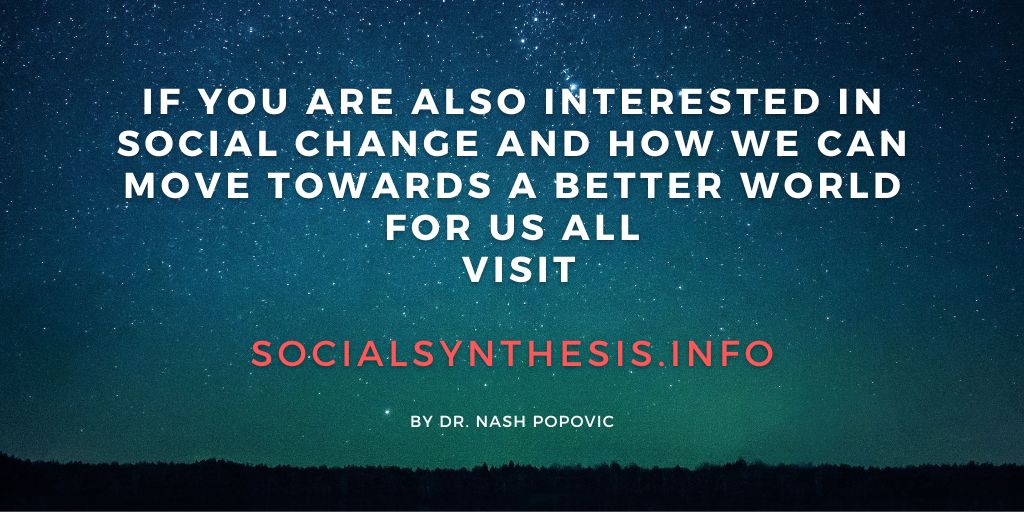49. Dependence
people; and then I go home alone.
Janis Joplin (American rock singer)
In this area, we will discuss three concepts on the dependence spectrum: co-dependence, inter-dependence and independence. We will also address and clarify the difference between loneliness and solitude, as this can help to deal with the former.
Co-dependence
Co-dependence is a highly dependent relationship in which one is helping or tending to the other in order to keep or control them. Those in a co-dependent relationship often perpetuate a status quo (e.g. excessive drinking of their partner) so as to remain needed. Co-dependence usually involves somebody who places a lower priority on their own needs, while being excessively preoccupied with the needs of others and is often accompanied by low self-esteem, excessive compliance, or control patterns. Co-dependence can occur in any type of relationship, including family, work, friendship, and intimate relationships. If you recognise such patterns in some of your relationships, you do not necessarily need to end them, but it would be healthier for all involved to at least address the issue – possibly with professional assistance.
Interdependence
Interdependence, on the other hand, means cooperating with others. It can also be defined as the interconnectedness and reliance on another physically, emotionally, socially, or economically. While co-dependence may not be healthy, inter-dependence is valuable and important. We all depend on others to some degree: children depend on their carers for food and shelter or on teachers to learn; adults are also dependent on public services or other family members. In fact, we are interdependent with just about everything and everybody, even with people we don’t know from different parts of the globe (as they may be producing something that we need).
Independence
Although we are all interdependent, a certain degree of independence is also important. Increasing independence is a normal part of personal development, encouraged in every society (although to different degrees). A high level of dependence can provide security with minimal responsibility, but it is not always reliable and can limit one’s freedom. It can also put the person in an inferior position, which may create feelings of worthlessness and powerlessness. Independence brings greater responsibility, but also greater freedom and self-confidence. Complete independence is neither possible nor really desirable, so we are talking here about its optimal level. This varies from person to person, so you will need to judge for yourself where you stand in this respect. Reflecting on these questions may help you do so:
Are you happy with your level of independence right now? If you are not, is there anything you could do to get to where you would like to be? If there is, when you will start?
Challenges
A move towards greater independence can be hampered by:
- Insecurity and anxiety: if this is an issue, it can be countered by making a gradual move or a few trial moves.
- Guilt can also hold back the process. In such a case it is important to take on board that becoming independent is not a betrayal. In fact, it releases others from the burden of responsibility and should not hurt anybody if it is carried out with respect, and does not mean abandoning them.
Dependence and interdependence: while co-dependence and independence do not go well together, independence is compatible with inter-dependence. This is because care, help, or doing things for each other does not need to be restrictive or controlling for either side in the interaction. So, confidence that you are capable of taking care of yourself and being able to do so, is not eroded by accepting occasional help from others. Asking for help when it is necessary is not a weakness; we all need it from time to time.
Social (in)dependence
Besides ‘practical’ (in)dependence discussed above, there is also social (in)dependence. It is helpful to distinguish two terms in this respect: loneliness that indicates social dependence; and solitude, indicating social independence. As the philosopher Paul Tillich puts it: ‘our language has wisely sensed the two sides of being alone. It has created the word “loneliness” to express the pain of being alone. And it has created the word “solitude” to express the glory of being alone.’(1) Let’s consider these in more detail.
Loneliness
The feeling of loneliness is a sign that we are dependent on the company of others. It is mistaken to think that this feeling is the result of being on your own. You may feel lonely even when with others, and be fine and feel connected when you are not. In fact, loneliness is usually a symptom of some other underlying issue:
- Anxiety or fear (clinging to others to escape it)
- Boredom (needing others to be entertained or to entertain)
- Low self-value (seeking approval or confirmation from others)
- Habit (not knowing how to be on your own)
For the first three issues, refer to the relevant areas in this book; if it is just a habit, keep reading. Before we move on though, it may be worth mentioning that you may also experience a bout of usually temporary but intense loneliness when you don’t feel good about yourself for some reason or after a loss (e.g. a break-up of a long-term relationship). In these cases, it may be wise to engage with others, even if only professionals (e.g. counsellors).
Consequences: loneliness can be temporarily eased by seeking company, but this increases dependency even further. Moreover, if others recognise that they are being used to ease your loneliness, it may cause resentment and diminish their respect. They may pull away and not be there for you when you really need them, or they may try to take advantage of your dependency and you may compromise just to keep their company. So, it pays off to know how to be comfortable when alone – this is known as solitude.
Solitude
Solitude does not mean avoiding other people but greater social independence: neither being attached to nor detached from others. If you are comfortable with both being with others and being on your own, you will not be compelled to move towards or to move away from them. Being on your own may not always be pleasant (as company may not be either) but it certainly could be. The following exercise can help you move from loneliness to solitude. Loneliness easily creeps in when we are afraid that we cannot be with others if we want to. So making a choice to spend some time on our own can, in fact, decrease our sense of loneliness.
Alone but not lonely: designate some time to be truly alone (excluding substitutes for company such as the phone or social media). Embrace your decision and try to create quality time for yourself without others. Time on your own has the advantage of greater freedom and depth – you can do whatever you like and focus fully on what you are experiencing (without somebody talking while you are enjoying your meal or stroll, for example). Pay attention from time to time to how you feel. If loneliness creeps in, acknowledge it and carry on with whatever you are doing. Let yourself feel the sense of connectedness without zooming in on specific others. Experiment until you are free from a compulsion to be constantly engaged with others, and your fear of loneliness and missing out (FOMO) does not affect your choices and behaviour.
You may ask, ‘but what can I do on my own?’ This question often comes to mind first when we face the prospect of being alone and are not used to it. Here are some suggestions: meditate, read, go for a walk, cook, make something, listen to music, play an instrument, paint, sunbathe, have a bath, exercise, do gardening, think about a new theory or how to become rich, learn something new, write, draw, fantasise, do nothing. Anything else?
(1) Tillich, Paul (1963) The Eternal Now. Upper Saddle River: Prentice-Hall & IBD, p.11

